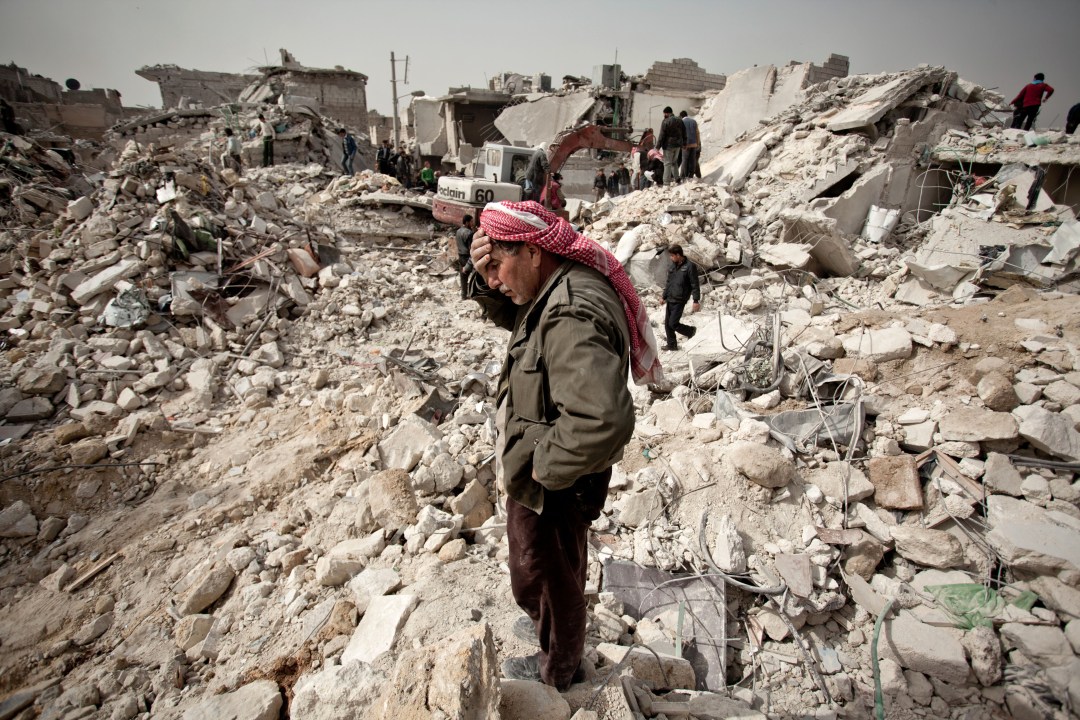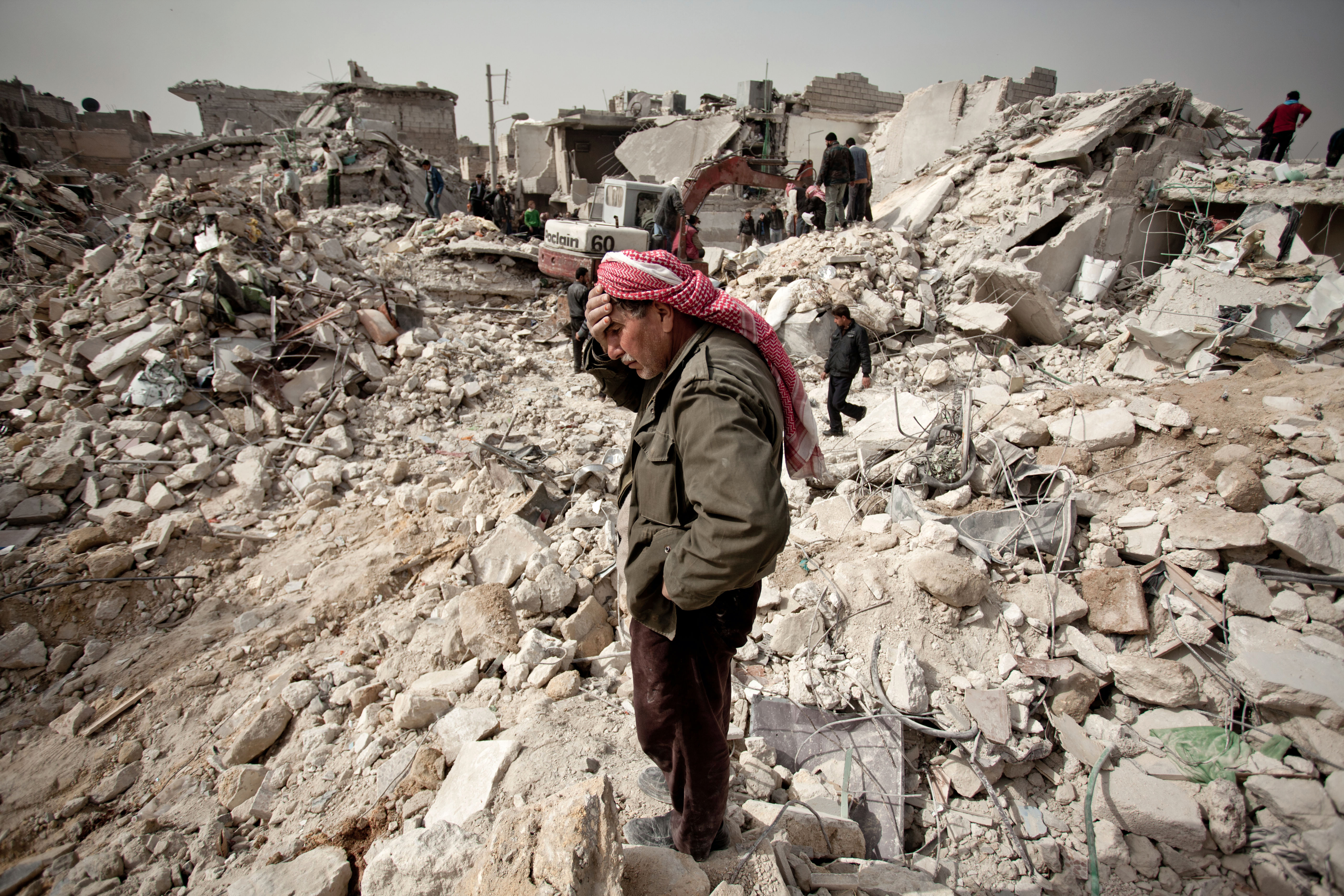Today’s Question To Which the Answer Is No is asked by Will Inboden over at Foreign Policy. To wit: Has Syria Become Obama’s Rwanda? There are many reasons why it has not, not the least of them being that the question rests upon an utterly false premise. According to Inboden, however:
In the crucible of policymaking, officials should ask themselves more often how they will look back on the decisions they made while in power. Former President Bill Clinton has repeatedly said that one of his biggest regrets was not intervening in Rwanda. As Obama and the senior members of his national security team consider the memoirs they will inevitably write and the speeches they will invariably give after leaving office, they might reflect now on what they will later say about their greatest regrets. At or near the top of that list will likely be “Syria.” So why not do something about it now, before Syria becomes permanently mentioned in historical ignominy alongside Rwanda?
Bill Clinton does indeed often say that the failure to intervene in Rwanda is his greatest regret. I don’t believe him. I think it’s a useful means of avoiding giving a more truthful answer to the questions “What would you do differently?” or “What do you most regret?” I think a more honest answer to the question might have to include the words “Monica” and “sexual relations”. Really, Rwanda is nowhere near the top of the list of Clinton Regrets.
If this sounds cynical then, trust me, it’s only response to the cynicism of Clinton’s own oft-stated regret. The paperback edition of Clinton’s autobiography runs to more than 1,000 pages. Rwanda is mentioned on no more than a handful of them. Indeed, the entire Rwandan genocide – and the west’s response to it – is covered in just a couple of paragraphs. If Rwanda is really a permanent stain on Clinton’s conscience it is one that, measured by his own memoirs, he does not find too troubling.
According to Inboden, however, Syria is just like Rwanda:
The similarities are striking. A president dogmatically focused on his domestic agenda who willfully disregards systemic and appalling bloodshed in a faraway land. A president haunted by the disappointments of recent U.S. interventions (in Clinton’s case, Somalia; in Obama’s case, Iraq and Afghanistan) who misapplies the “lessons” of this history into paralysis and inaction. A situation where the costs of action initially appear daunting — until they are weighed against the costs of inaction, which turn out to be even more damaging.
The similarities are, in fact, far from striking. From an American perspective there were no costs of inaction in Rwanda. The genocide, as appalling as it was, had no more impact upon American interests than did the long, chaotic, and brutal war in the Congo that, at one point, featured warring parties from as many as ten different African nations.
Moreover, there is a limit to even American power and even American presidents charged with commanding the world’s mightiest military have to keep one eye upon domestic public opinion. And the fact is that there is no more desire for American intervention in Syria than there was in Rwanda (or the Congo).
You may say that Obama has learned the lessons of the last decade too well but, if so, then you need to criticise the American people too. Even if Obama were to favour heavier intervention than that already announced, the administration’s ability to lead public opinion has been diminished by the experience of past interventions. The decreased salience of the Responsibility to Protect doctrine may reasonably be blamed on George W Bush. Whining that it shouldn’t be this way is all very well and good but scarcely changes the fact – uncomfortable perhaps – that it is this way.
Predictably, the Washington Post is all in favour of landing the United States in another middle-eastern war. The US should be supplying “heavy weapons” to the Syrian rebels. Additionally:
U.S. policy must also aim at helping the rebels establish a full-fledged alternative government on Syrian territory and recognizing it as the legal government of Syria. That would legitimize the supply of arms and allow the U.S. military to protect the Syrian population with airstrikes or Patriot anti-missile batteries, if that were necessary to stop the regime’s unconscionable targeting of civilian neighborhoods with missiles and artillery. It could also help to marginalize the growing al-Qaeda presence in rebel forces.
Could has to do quite a lot of work in that last sentence. And, of course, it might. But the last decade has demonstrated that it is much harder to leave a war than to join it. Few people will weep tears for the Assad regime and it may be that a replacement rebel government would – eventually – be a strategically advantageous result for the United States, Israel and the west. Nevertheless such an outcome can hardly be guaranteed and nor, despite what the Post says, is it evident that increased US help would shift the internal logic of Syria’s position to a more US-friendly stance.
In any case, Who lost Syria? is an idiotic question to ask or even hint about asking. Even a hegemon has its limits and while there may be costs to inaction they are at least much easier to value than the unknown and unpredictable costs of action. The Syrian civil war is an awful business but, without wishing to seem unduly callous, I think it will prove hard to persuade the American people that it is something about which they should care, far less a matter of urgency or future, poignant, Presidential regret.








Comments